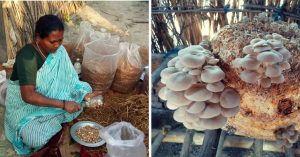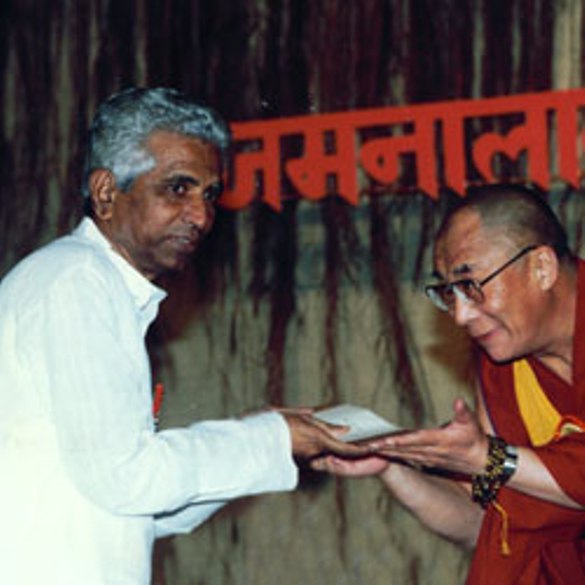Farming to Education & Healthcare: How a Gandhian Uplifted Lakhs in Rayalaseema
The main thrust of Muniratnam's activities for the improvement of the drought-prone areas is by the application of science and technology through the Krishi Vigyan Kendra established by him under the auspices of the Indian Council of Agricultural Research.
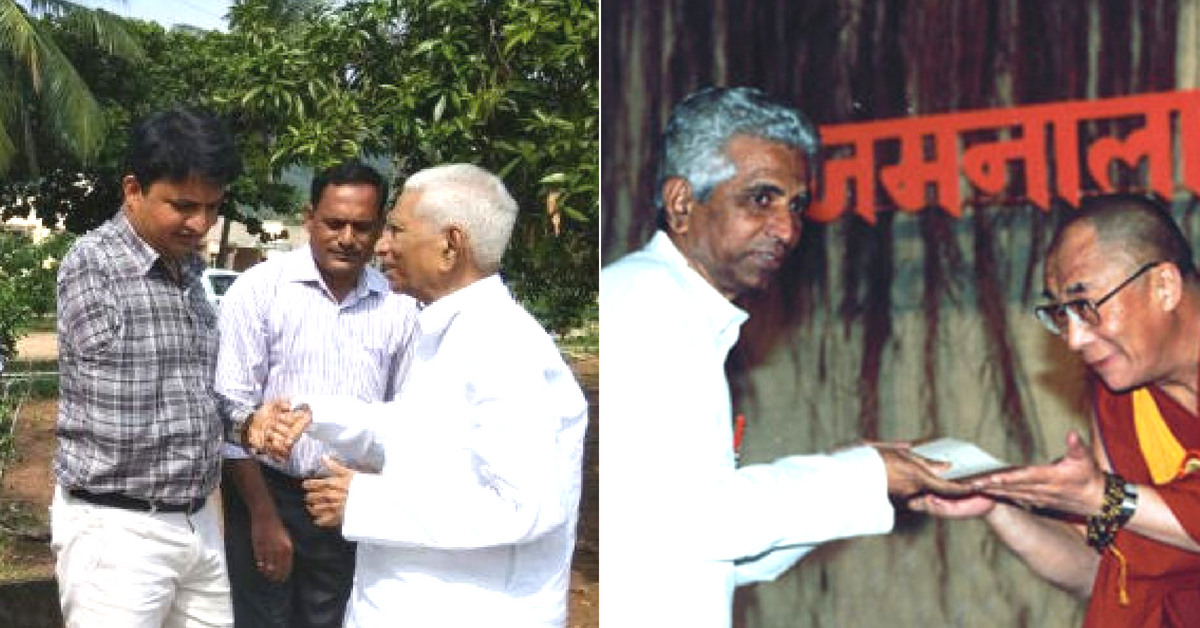
G Muniratnam was born on 6 January 1936. When he was 15, he organised a chain of children’s clubs known as Balananda Sanghams for the integrated development of poor children in rural areas. He also established a large number of maternity care centres in rural areas of Chittoor district of Andhra Pradesh.
He was associated with the youth welfare activities of the Bharat Sevak Samaj between 1960 and 1966. He made a careful study of the drought-prone areas of the Rayalaseema region and established the Rayalaseema Seva Samiti (RASS) for the improvement and relief of these areas.
RASS works in 2,500 villages across four districts of the region.
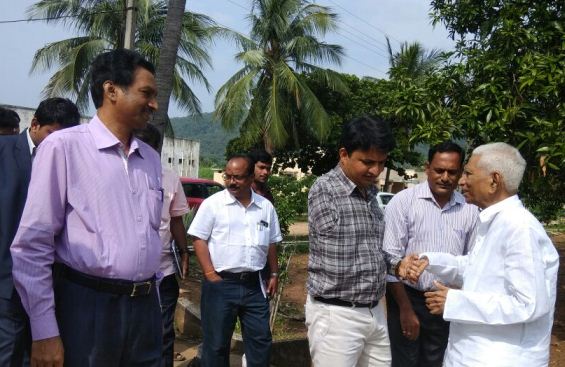
The main thrust of Muniratnam’s activities for the improvement of the drought-prone areas is by the application of science and technology through the Krishi Vigyan Kendra established by him under the auspices of the Indian Council of Agricultural Research. The all-round development of the people living in these areas has been his aim.
Hundreds of Mahila Mandals have been organised for women and child activities. Over 60 voluntary organisations have been assisted for preparation of schemes for rural development and in obtaining financial assistance from the government and other funding agencies. The total population covered by these activities is nearly a lakh and a half people.
Improvement of productivity of land in dry areas through the introduction of high-yielding varieties of food crops, pulses and oilseeds, multiple cropping by providing well irrigation have resulted in weaning away the area from drought and developing the agricultural potential of these areas.
In addition to this, sericulture, horticulture, agro-forestry, animal husbandry and dairying among small and marginal farmers have also been started by Muniratnam.
These programmes have helped generate gainful employment in the villages and reduced migration to the urban areas.

A demonstration and training farm has been attached to the Krishi Vigyan Kendra where farmers, both men and women, receive training in various agricultural pursuits. The training is based on the principle of learning by doing.
Simultaneously, by the application of scientific methods, Muniratnam had undertaken the development of wasteland through Agro-Social forestry and horticulture programmes, which include a free supply of saplings of fruit, fuelwood, fodder and timber trees.
Nurseries have been set up through which 5,98,00 saplings and 23,200 grafts of fruit trees were distributed for planting. School children were also involved in this programme of training, demonstration and promotion of green belt in the villages.
Raising of energy plantation on a 75-acre piece of land granted by the Government of Andhra Pradesh is another outstanding contribution to rural development through the application of science and technology. Apart from relieving the problem of the drudgery of rural women bringing firewood from long distances, it also resulted in the scientific development of the forests.
Similarly, a programme for the efficient use of rural energy had been started, whereby 3,400 smokeless chulhas (improved stoves) had been constructed, and 240 women workers were trained to go from house to house to share information about these to the rural women.
Since employment opportunities for women in rural areas are scanty, Muniratnam established training-cum-production units in Tirupati and Pichatur for training women in garment-making, embroidery, television and radio assembling, toy-making, biscuit-making, and typewriting.
The income generated from these units is disbursed among the trainees who are also given financial and other forms of assistance for setting up independent units after the training is completed.
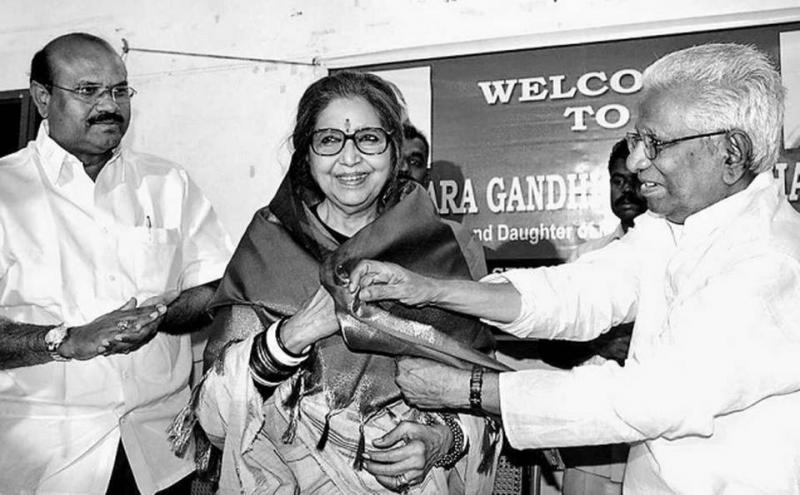
Many of them are also employed on a regular basis in large-scale commercial units. Over 2,000 women are annually benefited from this programme.
In the sphere of public health, 750-low cost sanitary latrines were constructed. Arrangements for the channelisation of wastewater and its utilisation for the irrigation of fruit trees like mangoes, coconuts and vegetable trees like drumstick wee provided. This was an excellent example of the recycling of water for production purposes.
Two mobile clinics were established to take medical aid to the doorstep of the poor in remote villages. The services include medical check-up, immunisation, community health, family planning services, personal hygiene and environmental sanitation by the community. A Nurse Training Centre has also been functioning since 1986.
In the sphere of education and literacy, he established creches and 600 Early Childhood Education Centres which have benefitted 30,000 children. He has also established 1,100 centres to provide non-formal education to 32,000 children in Chittoor and Kadapa districts, where 166 centres are exclusively for girls and 227 centres for SC/ST children.
All the development of programmes of the Samiti is carried out through active participation from people, including women and children with village-level committees.
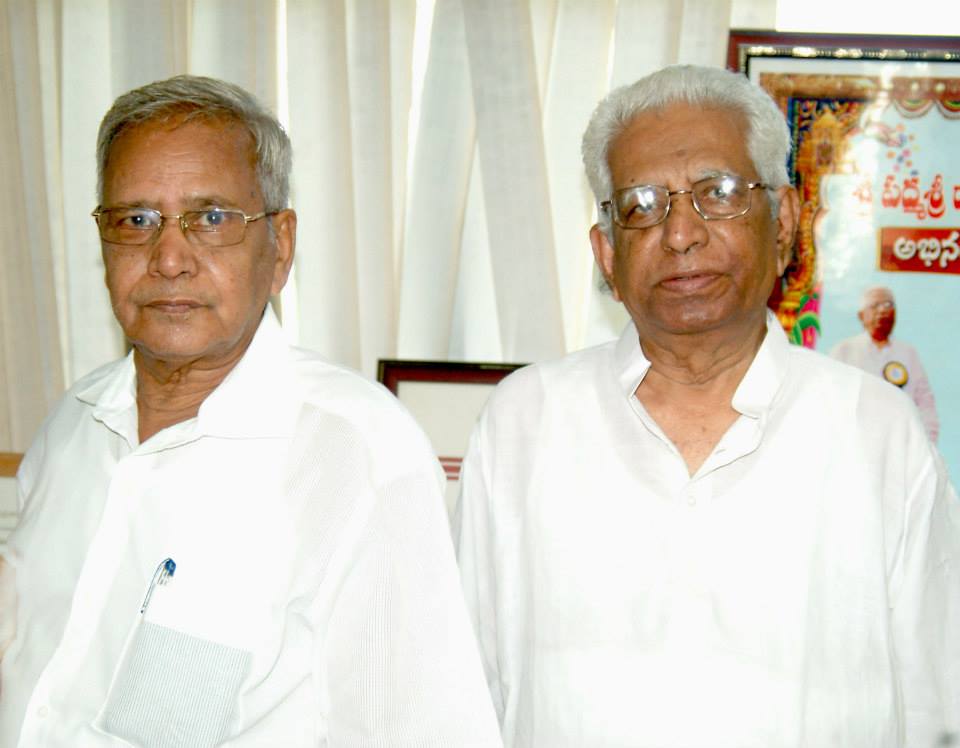
Source: Facebook
Muniratnam has been a source of inspiration for many non-governmental organisations that have, following his example, started various programmes such as ICDs, non-formal education, community-based rehabilitation of mentally and physically handicapped children, income generation programmes, the establishment of self-help groups, etc.
All RASS programmes have a long-term commitment from government institutions and funding partners. As such, the continuity of existing programmes is well assured. RASS was also sanctioned Krishi Vigyan Kendra by Indian Council of Agriculture Research.
Muniratnam has several plans for the future. He has already floated “Sahay Bharathi” which is going to be an All India Organisation for rehabilitating the physically and mentally handicapped children, a number of whom will be provided institutional care with the help of destitute women.
He is also planning to gradually withdraw from older villages to enable him to take up new villages for development. Realising his potential, the government is also initiating RASS into new areas, the recent one being Watershed Management.
The Indira Gandhi National Unity Award was conferred on Muniratnam for outstanding achievement in social work in 1989.
He received the Jamnalal Bajaj Award for Application of Science and Technology for Rural Development in 1995.
Like this story? Or have something to share? Write to us: [email protected], or connect with us on Facebook and Twitter.
NEW: Click here to get positive news on WhatsApp!
This story made me
-
97
-
121
-
89
-
167
Tell Us More
We bring stories straight from the heart of India, to inspire millions and create a wave of impact. Our positive movement is growing bigger everyday, and we would love for you to join it.
Please contribute whatever you can, every little penny helps our team in bringing you more stories that support dreams and spread hope.






